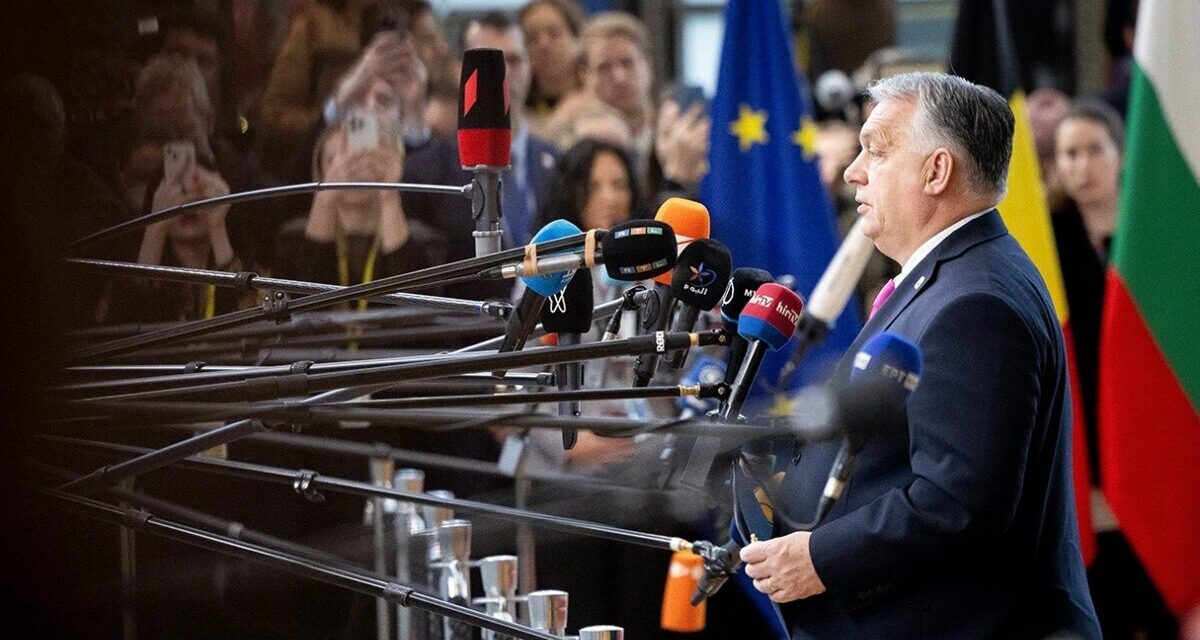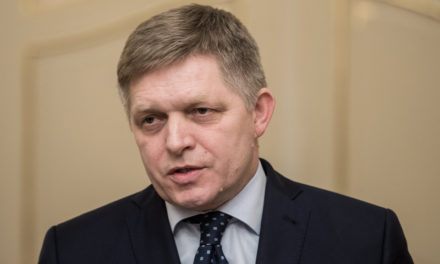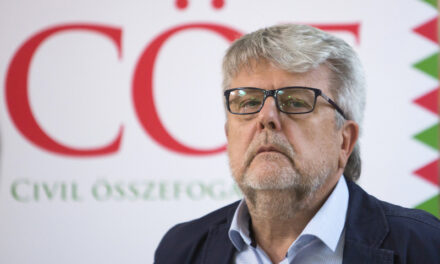While everyone is talking about the Ukrainian accession negotiations, Orbán made sure that the Commission smoothly disbursed the 10.2 billion euros released the day before yesterday. And we also have a plan for how to release all the frozen Hungarian money. Mátyás Kohán's writing on Mandiner .
Yesterday, the first big news of the EU Council summit exploded: Viktor Orbán made it possible for the European Union to start accession negotiations with Ukraine by constructively leaving the meeting room.
And so, the other major development of the Council last night was somewhat missed in the Brussels news feed: that Hungary vetoed the mid-term amendment of the EU budget, including fifty billion euros in loans and aid for Ukraine, with which the EU would have committed itself for four years to the support of Ukraine stuck in the war.
From Hungary's point of view, the latter is clearly the most important news
In connection with the release of 10.2 billion euros of cohesion money, the question arises in Hungarian newspaper readers who have been following the soap opera of EU funds for more than two and a half years: what is the guarantee that the European Commission will really keep its promise that sounds good on paper?
Well, this guarantee was created in no small part by vetoing the EU budget.
The Commission is under pressure to act: without a review of the seven-year EU budget (MFF), the EU institutional system cannot function, and the review must be carried out in any case. However, by postponing this decision to an extraordinary summit in January-February, in the coming months both the European Commission and the other member states must show fairness in the matter of Hungarian funds - otherwise, by definition, Hungary cannot contribute to the revision of the budget.
You can pay Ukraine, but it comes at a price
Balázs Orbán, the prime minister's political director, answered questions from journalists in the European Council building on Friday and said: according to the Hungarian government, the fact that the European Union finances Ukraine as part of the EU budget, committed four years in advance, is part of the failed Western Ukraine strategy. Instead, the Hungarian government proposes a new strategy, which must be based on new financial solutions.
That is why the Hungarian proposal is for the member states to give money to Ukraine on a bilateral basis, for a shorter period of time, for example one year.
Balázs Orbán did not rule out the possibility that Hungary might participate in such a solution.
The political director emphasized in Brussels: the financing of Ukraine within the EU budget "is a problem that they [the other European member states and the Commission - ed.] want to solve, not us." Therefore, if the other member states and the Commission were to bring Europe into the budget, it would become a budgetary issue and would immediately be linked to other controversial issues related to the budget - including the issue of the still frozen portion of Hungarian funds. Hungary does not want Ukraine to be financed from the EU budget,
but if the other member states insist on this, they can do so at the price of releasing all the frozen Hungarian money - Balázs Orbán made it clear.
Orbán also spoke about the fact that the other items of the budget review are already appropriate for Hungary, except for Ukraine and one more detail: the Commission would also ask the member states to cover the increased interest on the loan taken out for the recovery fund, but Hungary does not feel obliged to pay the interest on a loan that from which he did not benefit. Thus, without the release of recovery funds, Hungary cannot contribute to the increased interest costs. The catch for the Commission and the other member states is that interest is the only part of the budget review that the Commission cannot let go of - the loan has already been taken, the interest must be paid.
Therefore, the EU institutions and the member states have no other choice - they have to come to an agreement with Hungary,
and with fairness, they must actually pay out the released funds.
Photo: ministersterelnok.hu













